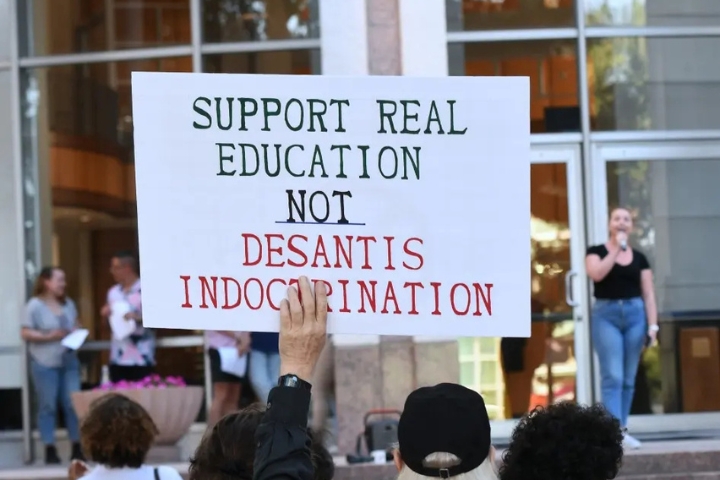Florida schools continue to grapple with book removals as titles by esteemed American authors, LGBTQ-focused narratives, and accounts of historical events, including the Holocaust, are increasingly pulled from library shelves.
Under recent changes to Florida law, parents and residents now have the authority to challenge school library books, leading to an unprecedented wave of book restrictions across the state.
This legislative shift has made Florida a focal point in the national debate on censorship, with the latest Florida Department of Education report revealing hundreds of banned books. Advocates warn this movement restricts students’ access to diverse perspectives, while state officials defend the removals as necessary to protect children from “sexually explicit materials.”
The Rise of Book Challenges and Restrictions in Florida Schools
Recent reforms in Florida have strengthened the voices of parents and citizens as they can be more vociferous when they challenge content within school libraries.
At the lead of a growing trend in school book removals from coast to coast are Florida, whose enactment of a school district requirement to make banned or restricted book reports has resulted in the removal of many titles by renowned authors from their school libraries.
Per Kasey Meehan of PEN America, “a restriction of access is a restriction on one’s freedom to read,” and the removal of these books translates into a loss for students.
Meehan said she believes in particular that students are “losing the ability to access books that mirror their own lived experiences” that she believes prevent them from learning empathy and making connections to differing perspectives.
Content Censorship Issues in School Libraries
Among books banned in Florida are some with notable LGBTQ characterization, gender identity discussion, or even content considered “pornographic” by critics. Some of the books banned included “All Boys Aren’t Blue” by George Johnson and “Gender Queer” by Maia Kobabe-two books that conservative voices debated as inappropriate for young readers.
Sydney Booker, representative of the Florida Department of Education, argued in defense of the state’s actions: “far left activists are pushing the book ban hoax on Floridians,” and then wondered what their motives might be: “why do these activists continue to fight to expose children to sexually explicit materials.” However, Stephana Farrell of the Florida Freedom to Read Project said that the list of restricted books alone points out serious issues within this movement, works of such authors as Toni Morrison, Alice Walker and George Orwell.




GIPHY App Key not set. Please check settings